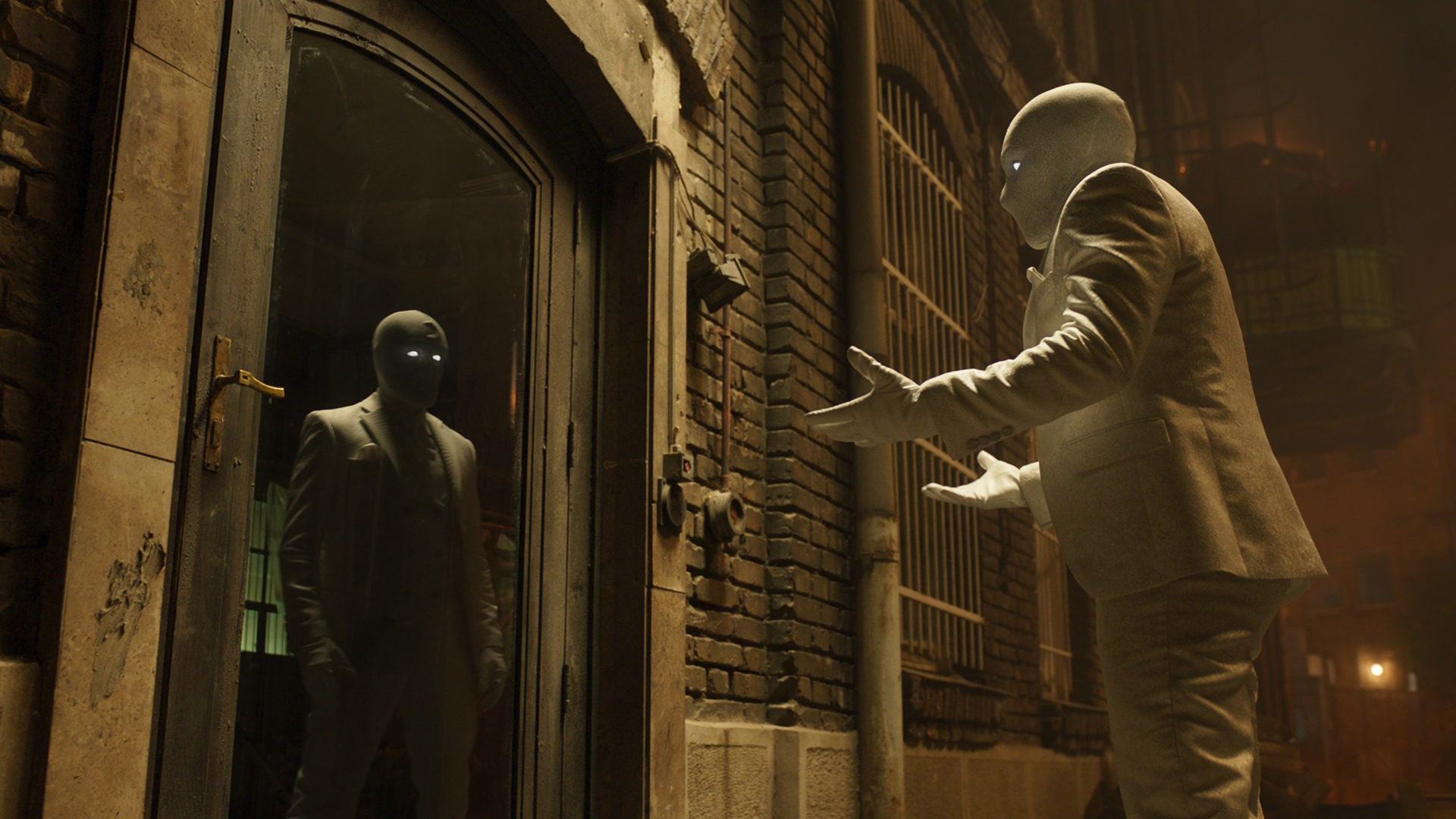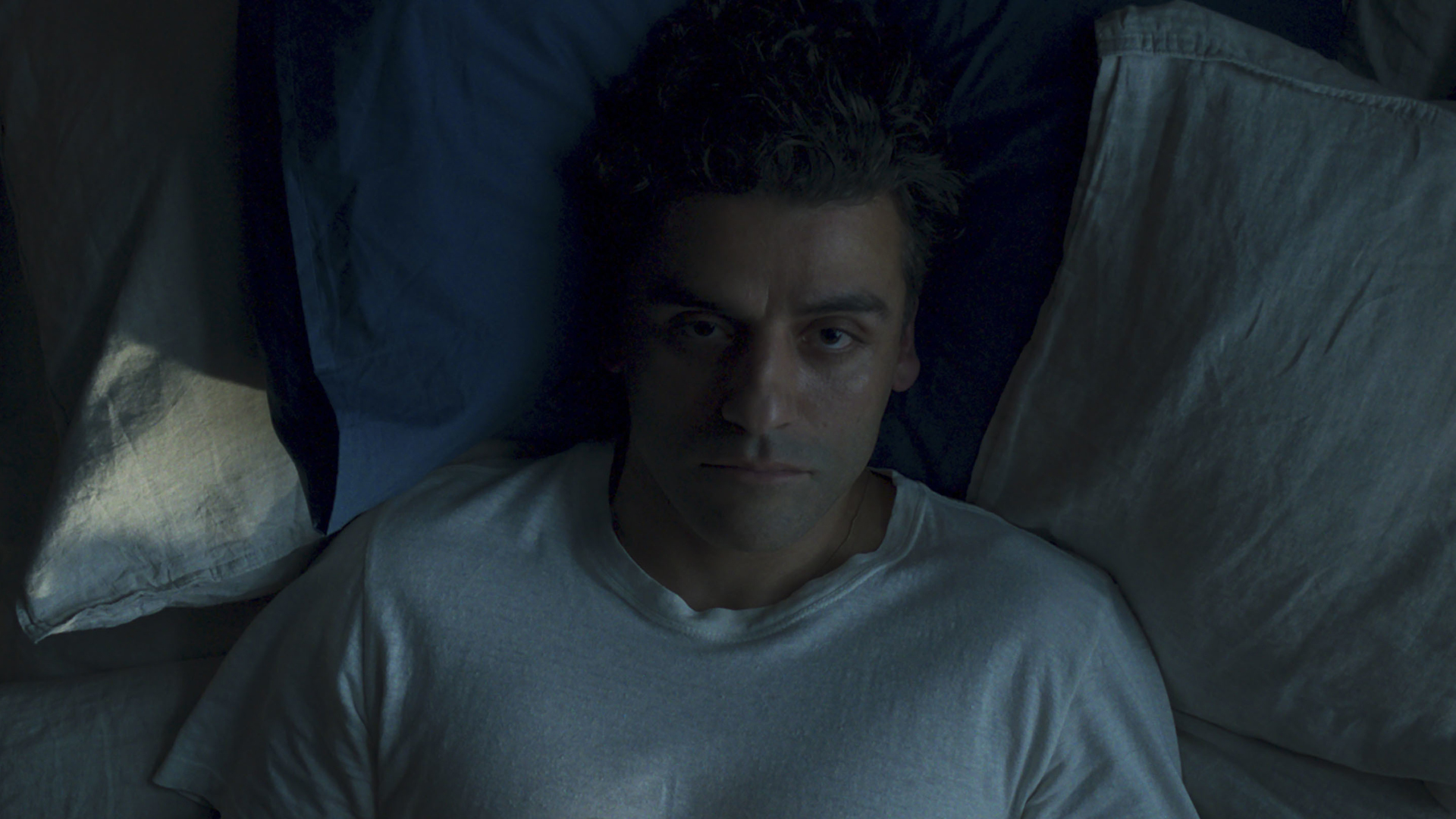Moon Knight’s weekly releases are ruining the Disney Plus show for me
Time to return to the Netflix Marvel model

Sign up for breaking news, reviews, opinion, top tech deals, and more.
You are now subscribed
Your newsletter sign-up was successful
We’re now halfway through the first season of Moon Knight on Disney Plus, and there’s a lot to be said for the show. Packed with thrills, chills, and blood spills, this unique Marvel TV show has me hooked.
It’s proving divisive for Marvel fans and reviewers alike, however, with some heralding the Marvel Phase 4 project’s fascinating plot and creativity as one of the best Marvel TV shows to date (ourselves included) - and others feeling that it’s distinctly lackluster.
I’m sitting somewhere between both camps. The show is right up my alley as a lover of Egyptology, superheroes, and Oscar Isaac. Sure, it took me a while to get into the first episode, but by the end, I couldn’t help but eagerly await its next instalment.
With great anticipation, I reached for the remote, instinctively going to hit the next episode button – only to remember that Disney Plus does not release these Marvel shows in their entirety. A week flew by but, despite my excitement from the previous week, I felt unusually lukewarm about the idea of watching the second episode. Still, I soldiered on, once more finding that it took me a while to settle in before the episode’s latter half had me back on board the hype train.
It wasn’t until the same thing happened again this week that I realized it’s not the show itself that’s making me switch off between episodes – it’s the release schedule that’s ruining Moon Knight for me.
Gimme more
As we highlighted in our review, Moon Knight foregoes much of the typical origin story narrative we’re used to seeing, steamrolling ahead to introduce high-level concepts that you are forced to grasp as quickly as Steven, one of Mark’s dissociative identities, does.
Alternating between rapid, fast-paced scenes with information overload and a slow-burn mysterious story that’s unveiled before viewers, Moon Knight creates a rich narrative overflowing in intrigue – but it’s also a lot to retain over the course of a week.
Sign up for breaking news, reviews, opinion, top tech deals, and more.

For me, it just doesn’t work; Disney has effectively taken all of the pacing, the stylization, and the drama of Marvel movies and similarly styled Netflix shows and retrofit these elements into a traditional TV show structure.
This may have worked for WandaVision, but in my opinion, that show’s success was largely built on how it parodies traditional TV (and sitcoms in particular). The protagonists are already known to the average viewer of the show, too – likewise for Loki and Falcon and the Winter Soldier. We know these characters very well from their other Marvel Cinematic Universe appearances, so there’s more space to focus on the storyline.
On the other hand, the Netflix Marvel shows, all of which released in their entirety and are now available to stream on Disney Plus, married this character development, world building, and anticipation so well because they weren’t constrained by traditional TV release schedules. They were able to capture the richness that comic book origin stories provide and extend this across their numerous episodes, which can be enjoyed at the viewer’s leisure.
Patience is a virtue
A weekly release schedule isn’t without its merit, of course. Crucially, it’s reducing the flood of spoilers for major plot points. Sure, there’s still plenty out there, but at least you’re far less likely to find out how a show ends before you’ve even started it.
It’s been a problem for Netflix since it established the new age of binge-watching culture; some viewers have the time to sit down and blast through an entire season where others don’t. Stranger Things stands out as an example of a show where some fans have suffered such a spoiler-filled fate.
Weekly releases also give shows a lot more time to breathe and find their crowd, which is important for a show like Moon Knight that leans on a lesser-known hero. As a show, it's a breath of fresh air, but it won’t be for everyone, so a longer release cycle allows uninterested viewers to drop off at a more natural cadence.
Plus, shows dropped in their entirety can generate enormous hype, which then dies down after a few weeks. For something like Moon Knight, this would render it far less likely to catch the attention of potential fans outside of hardcore Marvel viewers. Apple TV Plus shows, such as the critically-acclaimed Severance, have earned huge success based on their weekly episodic releases, its word-of-mouth promotion helping it to gain a mass following with each new entry. Why, then, can’t something like Moon Knight succeed in a corresponding manner?

So, why are Disney and Marvel sticking to this weekly release strategy? Well, since they first announced the move in 2019, it has likely been as a way to retain customers.
When the platform launched, there was considerably less content on it. It’s been a way to ensure that in their first few months of business, there’s a reason for people to keep their subscriptions active. Now, thanks to various acquisitions and a regular stream of new content, that’s not the case, but Disney seems to be sticking to its guns with its streaming service’s weekly episodic releases.
Is this the real issue here regarding weekly releases on Disney Plus? Not necessarily. As we’ve seen, there’s plenty of justification for weekly releases, but if that’s the approach Disney and Marvel will continue to take, maybe they should reconsider the cadence and pacing with which they write storylines, and shift away from some of the very cinematic elements they’re leaning on to carry shows like Moon Knight.
Of course, there’s always the option to wait until all of the episodes have been released, but if you have as much FOMO as I do, that's a tough call – so I guess I’ll see you all on Wednesday for the next episode.

Josephine Watson is TechRadar's Managing Editor - Lifestyle. Josephine is an award-winning journalist (PPA 30 under 30 2024), having previously written on a variety of topics, from pop culture to gaming and even the energy industry, joining TechRadar to support general site management. She is a smart home nerd, champion of TechRadar's sustainability efforts as well and an advocate for internet safety and education. She has used her position to fight for progressive approaches towards diversity and inclusion, mental health, and neurodiversity in corporate settings. Generally, you'll find her fiddling with her smart home setup, watching Disney movies, playing on her Switch, or rewatching the extended edition of Lord of the Rings... again.